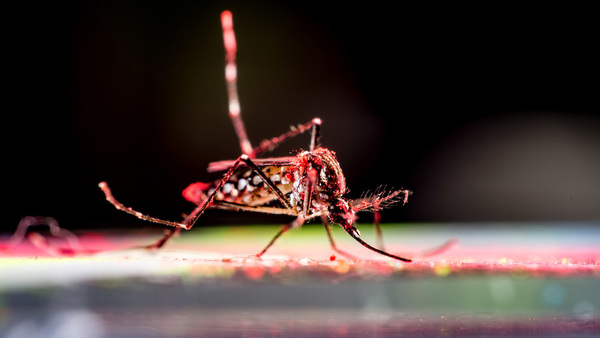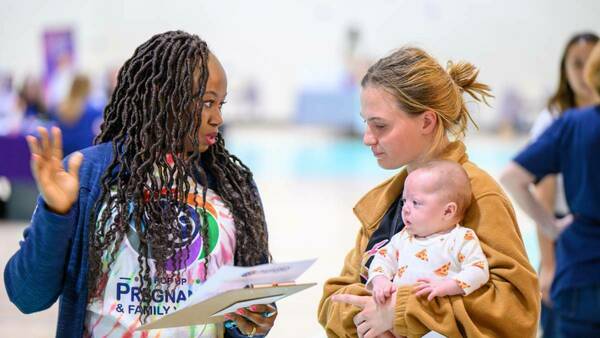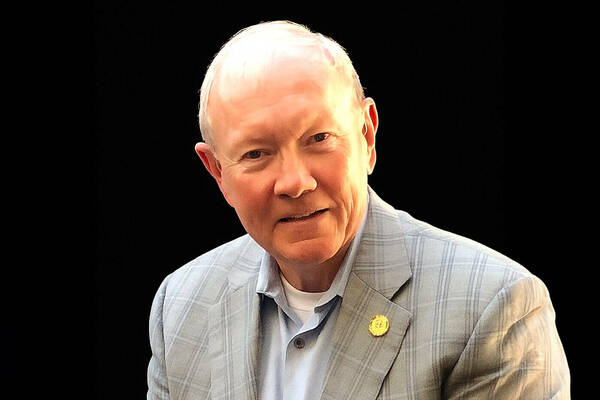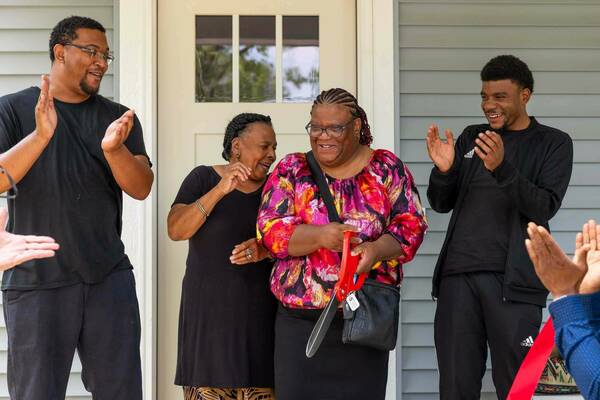Biotech hub that includes Notre Dame awarded $51M in CHIPS Act funding
The U.S. Department of Commerce and its Economic Development Administration have announced $51 million in federal funding to support the implementation of a Regional Technology and Innovation Hub that includes the University of Notre Dame among its members. Called Heartland BioWorks, the hub is led by the Applied Research Institute and aims to enhance Indiana’s capacity to make and deploy life-saving medicines.
Jeffrey F. Rhoads, vice president for research and professor in the Department of Aerospace and Mechanical Engineering at Notre Dame, said, “Heartland BioWorks’ new grant is exciting news for Indiana and the Midwest writ large. Every dollar will go toward establishing our region as a national and international leader in biotechnology and biomanufacturing. The University of Notre Dame could not be more proud to join together with the esteemed research institutions and industry partners helping to build an unparalleled innovation ecosystem and talent pipeline here in our state.”
Rhoads added, “We are especially pleased that through Heartland BioWorks, Notre Dame is able to contribute its expertise in data, bioengineering and the life sciences while also driving economic and workforce development throughout the Midwest.”
Nitesh Chawla, the Frank M. Freimann Professor of Computer Science and Engineering and founding director of the Lucy Family Institute for Data & Society, serves as Notre Dame’s lead on the BioWorks Hub.
Chawla said, “We have an established track record for bringing the latest data science and AI techniques to advance innovations in biotechnology and biomanufacturing and benefit human health. We have also developed educational and training programming, including internship and experiential learning opportunities for our students, and workforce development. Contributing these strengths to the BioWorks effort is a way for us to ensure we are producing breakthroughs that create benefits for society.”
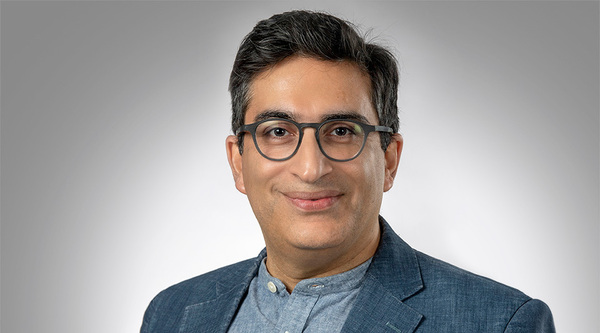
Other major Notre Dame contributors to BioWorks so far include Paul Bohn, the Arthur J. Schmitt Professor in the Department of Chemistry and Biochemistry and director of Notre Dame’s Bioengineering & Life Sciences (BELS) Initiative; Valya Kuskova, professor of the practice and associate director at the Lucy Family Institute for Data & Society; and Gina Svarovsky, an associate professor of the practice and faculty director of Notre Dame’s Center for Broader Impacts.
Last October, Heartland BioWorks was one of 31 regional hubs chosen for Tech Hub designation by the Department of Commerce. It is now one of 12 hubs chosen to split $500 million in funding that stems from the CHIPS and Science Act of 2022, which was co-authored by Indiana’s U.S. Sen. Todd Young.
Heartland BioWorks stated that the funding will support projects to:
-
Attract and connect workers, including those historically excluded from the innovation workforce, to good jobs.
-
Establish a formal network to provide navigation resources, mentorship and greater access to facilities and venture capital funding to help innovators successfully scale and launch their bioproducts in the region.
-
Construct BioWorks HQ, a training and demonstration facility for trainees to enter the workforce and for current employees to grow.
-
Implement a grant program to help early-stage innovators surmount cost barriers to accessing these product development facilities, keeping biotech inventions and supply in the U.S.
-
Develop training pathways, leveraging curricula from Indiana’s higher education institutions and other globally recognized training programs to prepare participants for high-quality jobs in biomanufacturing operator and lab technician roles once the BioWorks HQ is constructed.
In addition to the University of Notre Dame, Heartland BioWorks members include Eli Lilly, Elanco, Corteva, INCOG BioPharma Services, Roche, Indiana University, Purdue University and Ivy Tech Community College. To learn more about Heartland BioWorks, visit pathfinder.theari.us/heartlandbioworks.
Contact: Brett Beasley, writer and editorial program manager, Notre Dame Research, bbeasle1@nd.edu, 574-631-8183; research.nd.edu, @UNDResearch
Originally published by at research.nd.edu on July 8.
Latest ND NewsWire
- Researchers deconstruct chikungunya outbreaks to improve prediction and vaccine developmentThe symptoms come on quickly — acute fever, followed by debilitating joint pain that can last for months. Though rarely fatal, the chikungunya virus, a mosquito-borne illness, can be particularly severe for high-risk individuals, including newborns and older adults. While the virus is common…
- Eck Institute investigator to strengthen postpartum care for Indiana mothersYenupini Joyce Adams, associate professor of the practice and maternal health lead for the Eck Institute for Global Health at the University of Notre Dame, is partnering with Beacon Health System to pilot a new, first-of-its-kind postpartum care model in the South Bend-Elkhart community.
- Gen. Martin Dempsey to speak at Notre Dame Forum event on ‘Hope, Global Stability and the Role of the United States’Gen. Martin Dempsey, the retired 18th chairman of the Joint Chiefs of Staff, will join University President Rev. Robert A. Dowd, C.S.C., for a fireside chat at 4 p.m. Friday (Oct. 10), as part of the 2025-26 Notre Dame Forum. The discussion, titled “Hope, Global Stability and the Role of the United States,” is part of the exploration of this year’s Notre Dame Forum theme, “Cultivating Hope.” It will take place in Rooms 215/216 of McKenna Hall and will also be livestreamed. The event is free and open to the public.
- University of Notre Dame joins the Global Coalition of Ukrainian StudiesThe University of Notre Dame has joined the Global Coalition of Ukrainian Studies after signing a memorandum of cooperation, formalized Sept. 24, at the Ukrainian Institute of America in New York City. Notre Dame joined four other American institutions that were also publicly welcomed to the coalition at this event: Arizona State University, Columbia University, Manor College and the Shevchenko Scientific Society.
- One year later, Inauguration Build a ‘dream come true’ for Habitat familiesOne year later, work on Inauguration Build 2024 is complete, offering shelter and so much more to five local families.
- Alumni Association and YoungND honor 2025 Domer DozenThe Notre Dame Alumni Association announced its 2025 Domer Dozen cohort, honoring 12 graduates ages 32 and younger for excellence in their contributions in learning, service, faith and work — the core pillars of the association’s mission.








